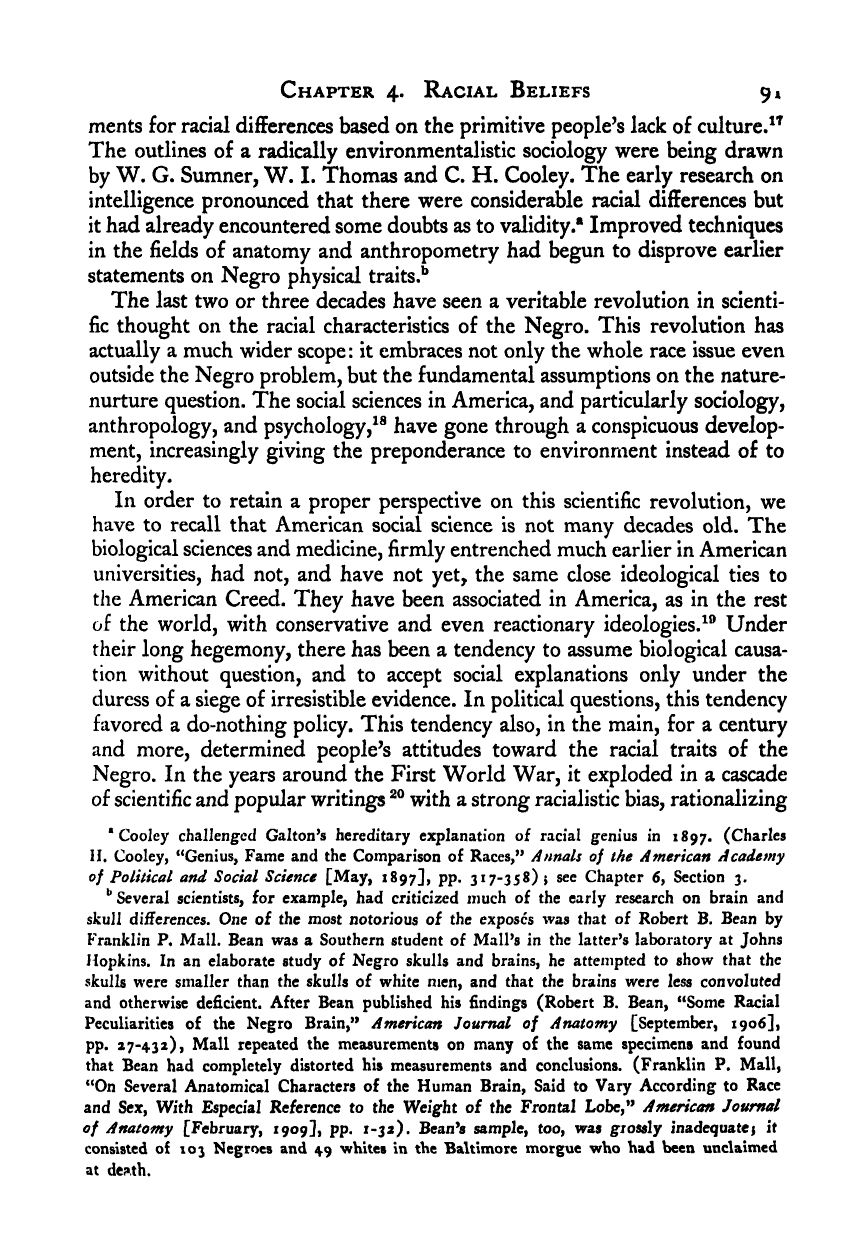Note: Gunnar Myrdal died in 1987, less than 70 years ago. Therefore, this work is protected by copyright, restricting your legal rights to reproduce it. However, you are welcome to view it on screen, as you do now. Read more about copyright.
Full resolution (TIFF) - On this page / på denna sida - II. Race - 4. Racial Beliefs - 4. Reflections in Science

<< prev. page << föreg. sida << >> nästa sida >> next page >>
Below is the raw OCR text
from the above scanned image.
Do you see an error? Proofread the page now!
Här nedan syns maskintolkade texten från faksimilbilden ovan.
Ser du något fel? Korrekturläs sidan nu!
This page has never been proofread. / Denna sida har aldrig korrekturlästs.
Chapter 4. Racial Beliefs 9*
merits for racial diflFerences based on the primitive people’s lack of culture.’*^
The outlines of a radically environmentalistic sociology were being drawn
by W. G. Sumner, W. 1. Thomas and C. H. Cooley. The early research on
intelligence pronounced that there were considerable racial differences but
it had already encountered some doubts as to validity.® Improved techniques
in the fields of anatomy and anthropometry had begun to disprove earlier
statements on Negro physical traits.**
The last two or three decades have seen a veritable revolution in scienti-
fic thought on the racial characteristics of the Negro. This revolution has
actually a much wider scope: it embraces not only the whole race issue even
outside the Negro problem, but the fundamental assumptions on the nature-
nurture question. The social sciences in America, and particularly sociology,
anthropology, and psychology,^® have gone through a conspicuous develop-
ment, increasingly giving the preponderance to environment instead of to
heredity.
In order to retain a proper perspective on this scientific revolution, we
have to recall that American social science is not many decades old. The
biological sciences and medicine, firmly entrenched much earlier in American
universities, had not, and have not yet, the same close ideological ties to
the American Creed. They have been associated in America, as in the rest
of the world, with conservative and even reactionary ideologies.^® Under
their long hegemony, there has been a tendency to assume biological causa-
tion without question, and to accept social explanations only under the
duress of a siege of irresistible evidence. In political questions, this tendency
favored a do-nothing policy. This tendency also, in the main, for a century
and more, determined people’s attitudes toward the racial traits of the
Negro. In the years around the First World War, it exploded in a cascade
of scientific and popular writings with a strong racialistic bias, rationalizing
<< prev. page << föreg. sida << >> nästa sida >> next page >>